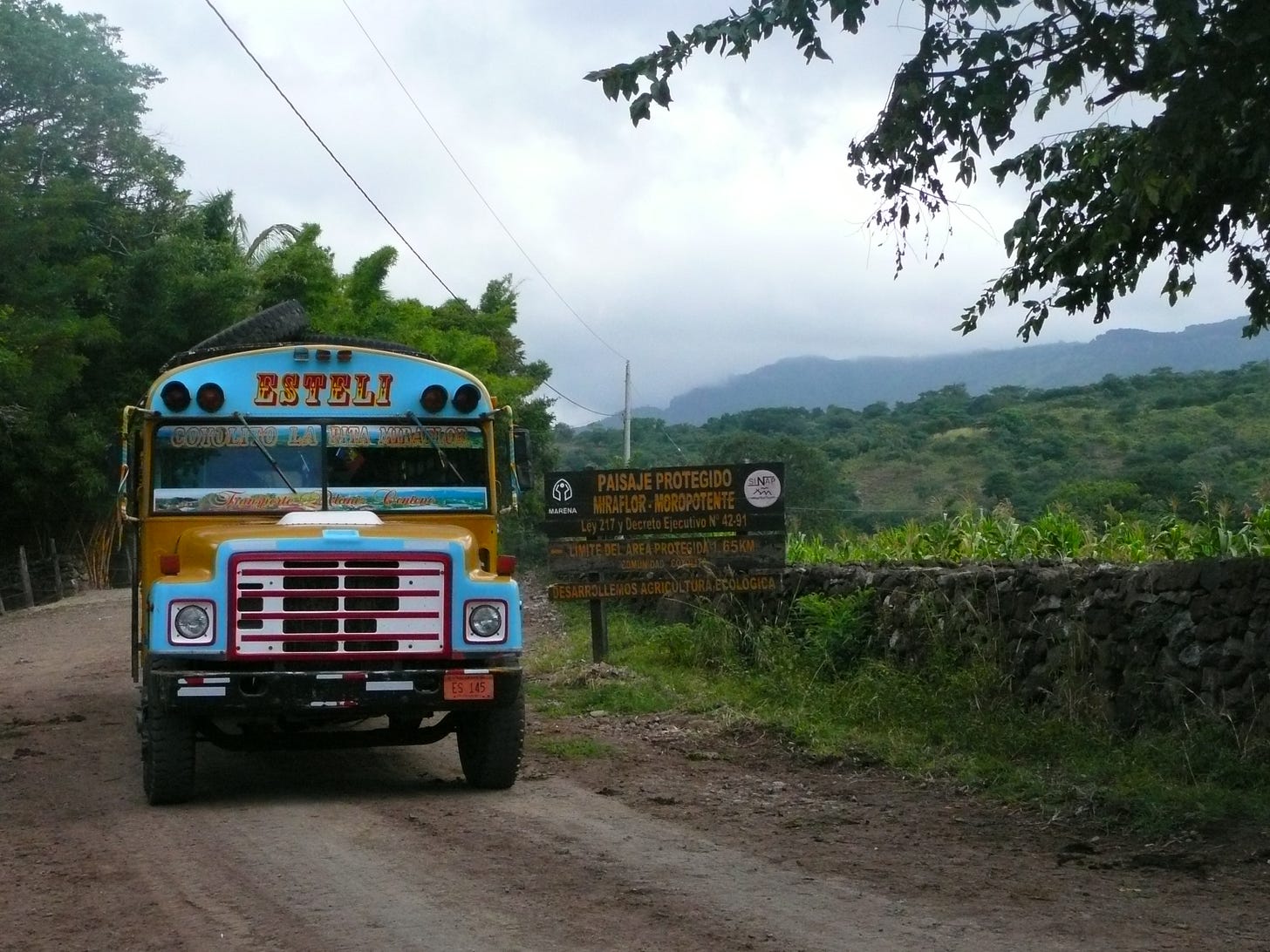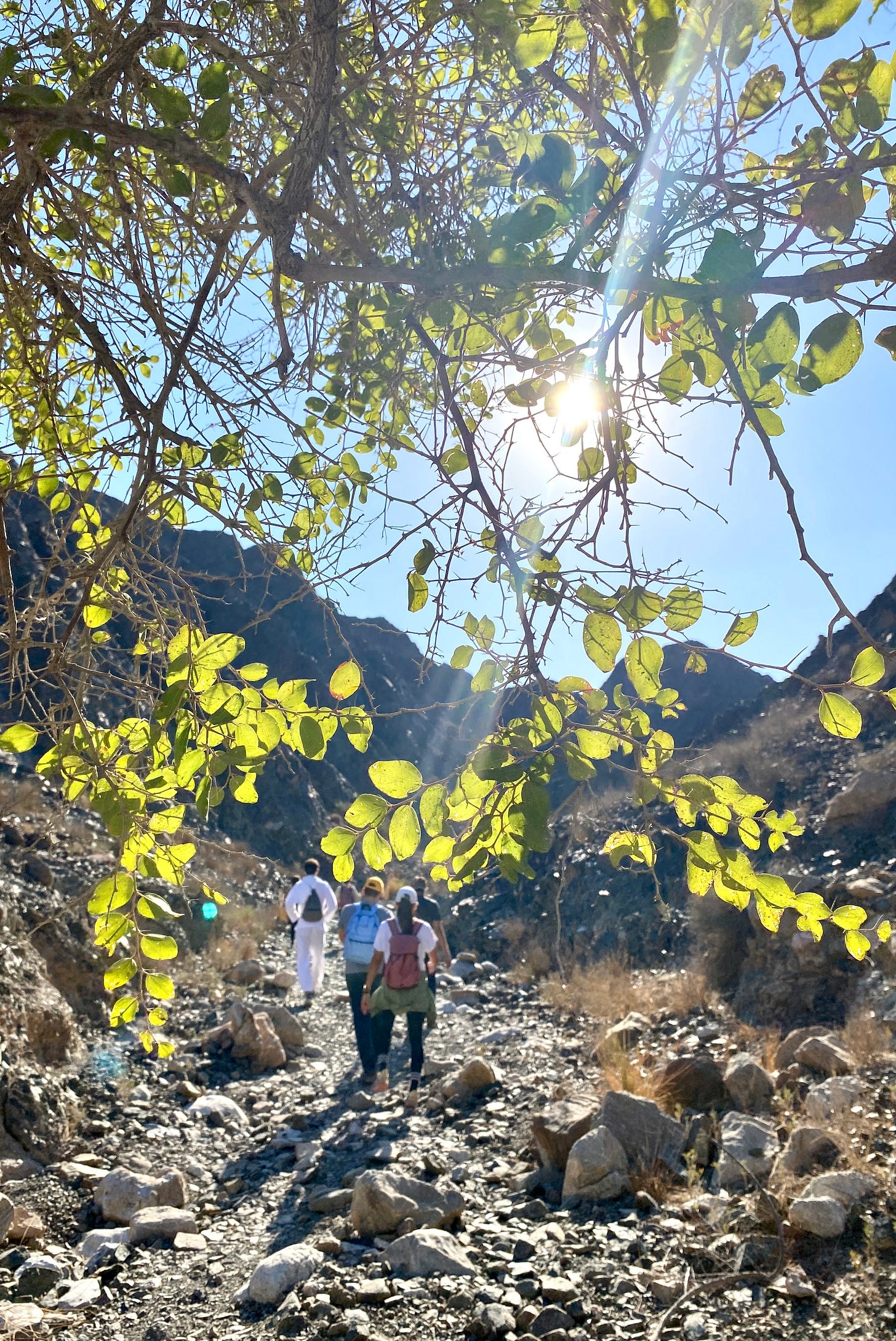Big Questions to Start the Year
Reflections on aid work, burnout, overgiving and the climate crisis
When I left Nicaragua, I was done.
Not only was I burnt out. I had seen how a project which was meant to help rural farmers did not create any of the impactful, easy changes my young optimistic mind expected to see.
Instead of seeing progress. I saw complexity. So much complexity. And it was heavy to carry around.

It took me two years to start to recover my health and rekindle some optimism, before I took a new in-country job in Myanmar and, again, was exposed to the complexity of change.
But I was ready for it this time.
Now, with a Master’s degree in International Development and a more reasonable understanding of my limitations, I set up my life in Myanmar so I could take care of my health. I approached my work projects with the aspiration mainly to be kind, rather than seek progress.
I did see some things change, but I decided not to believe them too much and certainly not to attach my presence to any of those positive outcomes.
I was a white person in a foreign land. And I knew now that change could lead to as many negative consequences as positive ones. In short, I knew the world was complicated. And I had become cautious.
I have since done all sorts of work for social and environmental progress. What I take away from them all is that trying to create change in the world - especially when it comes to shifting human behaviour - is not linear and not what we think it is going to be.
When I read about the recent Californian fires, my mind immediately jumped to two memories.
One was an event I had designed in 2021, bringing together young climate activists.
During one of the sessions, a speaker shared that COP 26 was the first time that disabled people would have any meaningful representation at a COP, while in climate disasters they are often the ones most affected. And if you read the stories of the victims in California, sadly you will see many of them were living with disabilities, or were elderly.
It frustrates me that knowing the risk of extreme weather for people with disabilities, we still witness this same outcome. It reminds me, that our systems are not shaped to hear the voices of those most vulnerable in a crisis, let alone start to design new ways of living and working, where they would not be so at risk in the first place.
Research shows that stresses brought about by climate change exacerbate existing social inequalities. Women are at higher risk than men. Economic poverty puts you at greater risk than if you have financial resources. Yet spaces in which decisions about global warming are made continue to be more made up of more male and wealthy representatives - while groups representing disabled, Indigenous Peoples or others directly affected by the climate crisis lack resources to attend - as well as facing more subtle social and cultural barriers to contribute to decisions.1
The second thought I had, seeing the images of the fires, is that this is a climate event in one of the most affluent parts of the world. And still, they struggle to put out the fires. And still, the damage was widespread. And still not everyone can be saved.
It is heartbreaking to see such damage. It is also heartbreaking that the world continues, as it did yesterday. That we limp on, that our systems continue as they did the day before. That planes still fly. That supermarkets are still stocked. Meetings continue. That we look on in horror, as we did with the floods in Spain, or the hottest year on record, or the fires in Australia and wish we could do something, but we also need to do our things. Like earn money to support ourselves. Clean our house. Stay fit. All our daily tasks, which are important too.
Yet what, beyond actual fire, is needed to get us fired up about change?
One of my personal goals this year is to challenge some of the apathy I have felt since I left Nicaragua in 2009.
Yet every time I ask, what am I doing? Why am I not doing more to take action for the climate crisis? It sits on me like a brick. Because I know that for much of my life, I have abandoned my own goals to try and help others. I have let myself be weak or small, so others can be strong and loud.
And now the world is burning again. And when I ask myself what can I do in my daily life to take action for the climate. I don’t have an answer. Because I also know that small actions I take will be relatively ineffective. Because I know I am a small cog in the bigger systems. I know that biggest change needs to come from companies and governments, the big polluters. And so that feeling of powerlessness, all while holding the desire to do something, sits uncomfortably.
I know this is not what I am meant to tell you. I am meant to write that we can empower ourselves. That we can fight and change and grow. That we can set aside our selfish dreams for collective ones, without becoming eroded ourselves.
My learnings from all these years working on creating social shifts, are much more subtle. I know that to create change, I need to grow in myself, so contributing to this work doesn’t wear me down. I also know that there is lightness in recognising my powerlessness, not glossing it over with false illusions of strength or loud shouting about transformation.
So, I want to start the year, by looking at what I can control - what I do have power and influence over.
And, I am asking myself these questions:
1. How can I accept that I live in a world which is facing a climate crisis?
2. How can I make myself strong so I can take positive actions in my daily life and be resourced to take those actions?
3. How can I embrace and learn all the tendencies that I didn’t learn at school, that our systems didn’t teach me to become - the types of tendencies that might be antidotes to capitalism and patriarchy and greed - like rest, collaboration, outspokenness and creativity?
4. How can I open my heart and mind to the world as it is?
5. How can I accept my own powerlessness as a starting point for understanding my real power, not my reactive power?
6. How do I accept my lethargy and disappointment as wise teachers from my time in Nicaragua, not obstacles to push aside and overcome?
It is strange how the truth, although hard, feels lighter, a little easier to bear. Because in that place, I am not trying to push something I have no control over up a hill.
I am standing where I stand, assessing the lay of the land. And that is where I want to choose my actions from.
Friends,
I am going to be exploring more of these topics over 2025. I want to look more at our true power, global systems and ways we can show up with light hearts and joy - to stand up for ourselves, nature and shape the type of society we want to see. (Alongside more of my travel and creative stories).
These are not questions we can explore alone and I would love to hear your thoughts:
How do you address taking action for climate within our current systems of power?
See you next week, and till then …
Some pieces of inspiration I came across, as I started to ask myself these questions:
These facts come from my reading and research in this topic for years. I am referencing opinions of activists I have heard on stage, or read on LinkedIn and many research reports I have read. If you want to read more about these concepts - comment below and I will happily send you some reading suggestions.




"How can I open my heart and mind to the world as it is?" - gosh, this is so hard. I work in animal rights and the sheer amount of misery I see every day in my work, the absolute worst of humanity and the horrors we inflict on those among the most indefensible, has made me put up some kind of armour of defiant joy when not working. As soon as I clock off, I dive into major FOMO mode, trying to have as much fun as possible to block out the truth of the world. It's like if I pour enough Proseccos on the beach, go on enough scenic hikes, wear enough pretty outfits I can forget the world as it is. I make my world smaller to close myself off to the horrific realities. And I think many people do the same. In my view, the road to empowerment lies in small collective actions. Coming together even in the smallest of ways. Addressing ONE single thing a day, or a week. Taking those blinders off for a minute and engaging in collective goals to feel that yes, we CAN make a change. A small spark that will light a bigger fire. Hopefully.
So much hard learning and wisdom here. Re the person who is dreaming of a world... I like these kinds of ideas as they are statements of values and aspirations. I also find them utterly hopeless because they ignore aspects of the world that we know have existed forever and which I think have to be faced up to and brought into any proposed plan of action; the existence of power-hungry, traumatised people who don't share these values/ideas; people who have historically experienced or currently experience severe deprivation or injustice who don't necessarily have the capacity or resources to take certain actions; and god knows many more realities like these. We're so conditioned to think that trying to understand ourselves is selfish but as you suggest (I think?), not doing so can just compound the problem of so many unconscious wounded people trying to act in the world without insight etc. I think it has to be local. Knowing what our unmet needs are and how they affect our social behaviour and drives, and acting literally locally, in our own communities. Knowing about vast amounts of world suffering paralyses so many of us because we know we can do nothing. But we can do plenty at the level of our own interactions, and in terms of offering our time to our own communities...